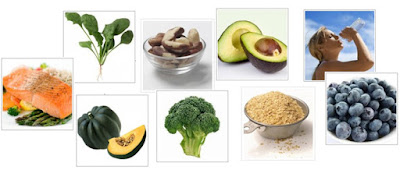Crohn's disease
Crohn's disease or ulcerative colitis is a chronic inflammatory bowel disease that causes inflammation to the lining of the digestive tract. It can lead to abdominal pain, severe diarrhea, constipation, fatigue, nausea, weight loss, and malnutrition. Inflammation caused by Crohn's disease can affect different areas of the digestive tract in different people.
Anyone can develop Crohn's disease. IBDs, however, is usually diagnosed in young adults between the ages of 15 and 35. Children are twice as likely to be diagnosed with Crohn's as ulcerative colitis.
Most people who develop Crohn's disease are diagnosed before they're around 30 years old. Taking proper care of inflammation can minimize the progressive damage.
The experts of gastroenterology at SMILES outlines five main types of Crohn's disease and their accompanying symptoms.
5 Different Types of Crohn's Disease
1. Ileocolitis
Ileocolitis is one of the most common forms of this disease. This causes inflammation and irritation at the end of the small intestine (ileum) and the large intestine (colon).
2. Ileitis
Ileitis is a type of Crohn's disease that causes inflammation only to the ileum, a portion of the small intestine.
3. Crohn's colitis
Crohn's colitis or granulomatous colitis is a type of Crohn's disease that affects the colon, the main part of the large intestine. People with colitis may experience fistulas, ulcers, and abscess near the anus.
4. Jejunoileitis
Jejunoileitis causes patches of inflammation in the jejunum, the upper part of the small intestine. This form of Crohn's disease is more commonly diagnosed in children than adults.
5. Gastroduodenal Crohn's disease
Gastroduodenal Crohn's disease affects the stomach, esophagus, and duodenum (the first part of the small intestine). Around 5% of people with Crohn's disease have Gastroduodenal Crohn's disease.
Crohn's Disease Complications Requiring Surgery
1. Intestinal obstruction or blockage
Chronic inflammation in the intestines can cause the walls of your digestive organs to thicken or form scar tissue. This can narrow a section of intestine, called a stricture, which may lead to an intestinal blockage.
2. Excessive bleeding in the intestine
This is a rare complication of Crohn's disease. Surgery is performed only if the bleeding cannot be controlled with other treatments
3. Perforation of the bowel
Chronic inflammation may weaken the wall of the intestine and cause a hole called a perforation. This can also happen if a portion of the bowel expands and weakens near a stricture.
4. Fistula
Inflammation can cause sores, or ulcers, to form in the inside wall of the intestines or other organs. Sometimes, these ulcers can extend through the entire thickness of the bowel wall and form a connection or tunnel, called a fistula .
5. Abscess
An abscess, or a collection of pus, can develop in the abdomen, pelvis, or around the anal area.
6. Colorectal cancer
Patients with Crohn and ulcerative colitis have a higher risk for colorectal cancer (CRC) than the general population, so elective surgery may be recommended to eliminate that risk.
Remember, Crohn is not an illness that goes away in a single day or overnight. But, by taking proper care of inflammation you can minimize the progressive damage that can accumulate over a lifetime.
For more information, call us: 8099008800












